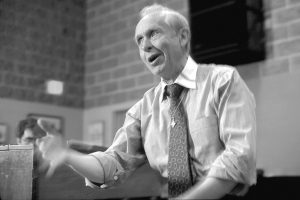Karen Brunssen, Associate Professor of Voice at the Bienen School of Music, Northwestern University, president-elect for the National Association of Teachers of Singing and 2013 recipient of Luther College Weston Noble Award
Weston Noble: November 30 1922 – December 21 2016
The highly honoured conductor and accomplished music educator, Weston Noble, passed away peacefully December 21 2016 at the age of 94. A visitation and prayer service was held at First Lutheran Church in Decorah, Iowa on December 29 2016. His burial with full military honours took place at the Riverside Cemetery in Riceville, Iowa, on December 30th 2016. A Celebration of the Life of Weston Noble will be held at Luther College in Decorah, Iowa, at 1:00pm, May 13 2017.
After hearing of Mr. Noble’s passing, a former Luther College student wrote, “How often in our lives do we encounter an individual who impacts us in such a profound manner that it fundamentally changes who we are as human beings?” In one of Mr. Noble’s many inspiring lectures he referred to the privilege of being a conductor of music:
“If we accept the lifelong challenge to be a clear, effective channel for the great power of music to flow through to others– which is totally anti-negative and anti-judgmental– then we will produce lasting moments that “revive and readapt time and space.”
This he referred to as a garden of trust where the safety of singing or playing within ensembles allows people to be vulnerable and experience transformative moments through music.
“I like to express those special times as moments of wholeness when all the disparate parts within us come together. Perhaps one of the elements of music…..touches our spirit in an unusually special way………We are, for a moment, non-fragmented, ‘all together’, beautifully whole.”
(Noble, W. (2005). Creating the Special World: A Collection of Lectures by Weston H. Noble. (Steven M. Demorest, ed.), Chicago: GIA Publications. Pages 27 and 18)
Weston Noble was born in Riceville, Iowa, a small town about 45 miles west of Decorah, Iowa. He began piano lessons when he was five, graduated valedictorian from his high school, and began studies at Luther College in 1939 as a music student. In 1943 he graduated early from Luther College so he could enlist in the Army. During World War II he was with the 750th Tank Battalion, and fought in the Battle of the Bulge. When he returned home he taught in Luverne, Minnesota for a few years before earning his Master’s degree in Music at the University of Michigan. In 1947 he was hired to be the interim choir director at Luther College.
As it turned out, Mr. Noble conducted what is considered one of the most elite choirs in the United States, Nordic Choir, at Luther College in Decorah, Iowa, for 57 years, from 1948 – 2005. He also conducted the Luther College Concert Band from 1948-1973. Both ensembles toured extensively. Under Mr. Noble’s direction Nordic Choir performed in over 20 countries and throughout the United States at churches, schools and in great spaces such as The Town Hall, Carnegie Hall and Lincoln Center in New York City; Kennedy Center, Washington, D.C.; Crystal Cathedral in Los Angeles; the Mormon Tabernacle in Salt Lake City, Utah; American Choral Directors Association conventions; Tchaikovsky Hall, the Kremlin and Bolshoi in Moscow; the Grand Philharmonic Hall in St. Petersburg; the Franz Liszt Academy in Budapest; and the famed Estonia Song Festival with over 25,000 singers.
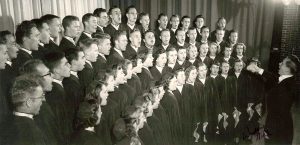
Nordic Choir was known for its rich sound which included voices of all sizes. Mr. Noble’s placement of singers within the choir accomplished a choral blend that brought a broad range of vocal colours together with comfort for each singer. He would start with two people from a section and have them sing the first stanza of the hymn My God How Wonderful Thou Art. One by one he would place a singer on either side of the duo, mixing in all those in the section until he found the right balance. Choir members held hands during performances. The final piece in Nordic Choir concerts was O Lord God by Pavel Chesnokov. In later years, he added an arrangement of When I Survey the Wondrous Cross for choir and organ.
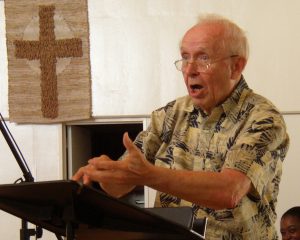
At Luther College Mr. Noble established the Dorian Band Festival in 1949 and the Dorian Vocal Festival in 1950. Over the years this expanded to include festivals and camps that have been attended by over 90,000 students aged 11-18 in band, keyboard, orchestra and voice categories. Up until 2004 he continued the long tradition of annual rehearsals and performances of Handel’s Messiah with a mass choir of up to 1,000 voices made up of students, alumni, faculty and staff, along with student soloists and a full orchestra. Mr. Noble treasured 56 years of the Messiah concert tradition as an opportunity to expose many singers, beyond those already in Luther College choirs, to the power of sacred choral music.
Weston Noble was a charter member of the American Choral Directors Association and an elected member of the American Bandmasters Association. When the North Central Division ACDA established the Weston H. Noble Award for Lifetime Achievement, their first honouree was Weston Noble himself. He also received the National Federation of State High School Association Outstanding United States Music Educator Award, the American Choral Directors Association Robert Laweson Shaw Citation, the Lowell Mason Fellow Award from the National Association of Music Education, St. Olav’s Medal from King Harald V of Norway, the Distinguished Service Award from the Church of Jesus Christ of Latter-day Saints, the Midwest Clinic Medal of Honor from the International Convention of Band and Orchestra Directors and honorary doctoral degrees from Carthage College, Wartburg College, St. Olaf College, Augustana College, and Westminster College of Rider University. Mr. Noble guest directed more than 900 all-state bands, orchestras, choirs and festivals in every state within the United States and globally across four continents.
Following Weston Noble’s retirement, he did year-long guest conducting residencies at three colleges in the United States; Augustana College in Sioux Falls, South Dakota; Wartburg College in Waverly, Iowa and Carthage College in Kenosha, Wisconsin. He also continued to do music festivals around the globe including the International Schools Festival in Kuala Lumpur, Malaysia in 2009; the Korean based Camarata Music Company’s concert of Handel’s Messiah in 2010; the Pacific Summer Music Festival in Guam in 2012 and the Korea National Choir in Seoul in 2013.
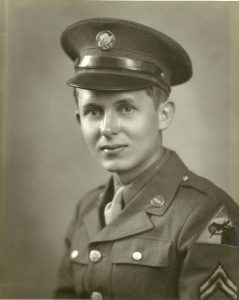
In 2006 the Weston Noble Alumni Choir (WNAC) was formed. They met to sing under the direction of Mr. Noble on the Luther College campus during the summer for a fun-filled week of rehearsals, dinners, socializing, a talent night and the culminating performance. This intergenerational choral experience wove together people from Mr. Noble’s 70 years of conducting choirs. He announced, in 2014, that the summer of 2015 would be the last for the alumni choir. Over 130 people participated that year. The WNAC was a sustaining power throughout the last years of Mr. Noble’s life.
Weston Noble’s accomplishments are a living reflection of his belief in using music to open people’s hearts and minds. The deep and lasting traditions established by Mr. Noble, his compelling humility and effective rehearsal techniques gave purpose and methodology to the hundreds of thousands who experienced his rehearsals, performances, lectures and workshops. Choral rehearsals, whether with the 65 voice Luther College Nordic Choir, Messiah Choir, Weston Noble Alumni Choir, Dorian Festival Choir, Allstate Choirs, or festival choirs across the globe, were much more than learning notes and rhythms. He carefully planned his rehearsals and the music in his programmes, some of which was written with him in mind. His conducting, comments, sense of inner-rhythm, keen ear and refreshing interaction with members of the choir brought harmonies, rhythms, melodies and words to life. One never knew when they might be called on to answer a leading question, or tap the smallest division of the beat, or sing as an example for the rest of the choir. This kept everyone alert, excited to participate, and cleverly affirmed and validated singers. Often, he called people by the name of their hometown rather than their given name. He had an uncanny ability to remember where people came from, probably due to the thousands of postcards and phone calls he made over six decades recruiting students for Luther College.
Choral music is one of the world’s marvellous means of human expression. Weston Noble will always be considered among the finest choral conductors who manifested music’s greatness in, and through, many. The excellence that grew under his tutelage throughout the 70 years of his teaching and conducting career resounds across the globe in conductors, educators, composers, teachers, scholars and singers who carry it forward to future generations.
Now more than ever, connecting with one another through music is imperative. In a world increasingly defined by technology and its resulting isolation, creating a choral community matters. Through our actions, we continuously define ourselves as individuals, but more than that, through those actions each of us contributes to the definition of humanity………Although we can’t ignore the evil, it becomes our individual and collective task to redefine humanity in terms of the best of which we are capable.
WE KNOW
that singing together is transformational.
SO….
We can question.
We can search for answers.
We can comfort.
We can create.
We can love.
We can sing!
(Weston Noble, 2012, World Choral Symposium on Singing)
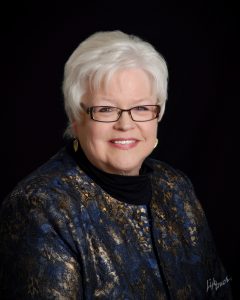 KAREN BRUNSSEN, mezzo soprano, Associate Professor of Voice, Bienen School of Music, Northwestern University, Co-Chair of Music Performance. Ms. Brunssen sang with Weston Noble in Nordic Choir while a student at Luther College, and received the Weston Noble Award in 2013. Her singing career spanned over 30 years throughout the United States and Europe. Articles in the ACDA Choral Journal in February, 2010 and 2017 encourage age-optimal vocal techniques based on knowledge about non-uniform human development of respiration, vibration, and resonance. She presented at the 2016 ACDA Central Division Conference, 2015 ACDA National Conference, and 2014 and 2012 NATS National Conferences. Teaching residencies include Cambridge University and the Zürcher Sing-Akademie. She is a member of the distinguished American Academy of Teachers of Singing and is President-Elect for the National Association of Teachers of Singing. Email: kabrunssen@gmail.com
KAREN BRUNSSEN, mezzo soprano, Associate Professor of Voice, Bienen School of Music, Northwestern University, Co-Chair of Music Performance. Ms. Brunssen sang with Weston Noble in Nordic Choir while a student at Luther College, and received the Weston Noble Award in 2013. Her singing career spanned over 30 years throughout the United States and Europe. Articles in the ACDA Choral Journal in February, 2010 and 2017 encourage age-optimal vocal techniques based on knowledge about non-uniform human development of respiration, vibration, and resonance. She presented at the 2016 ACDA Central Division Conference, 2015 ACDA National Conference, and 2014 and 2012 NATS National Conferences. Teaching residencies include Cambridge University and the Zürcher Sing-Akademie. She is a member of the distinguished American Academy of Teachers of Singing and is President-Elect for the National Association of Teachers of Singing. Email: kabrunssen@gmail.com
Edited by Theresa Trisolino, UK


